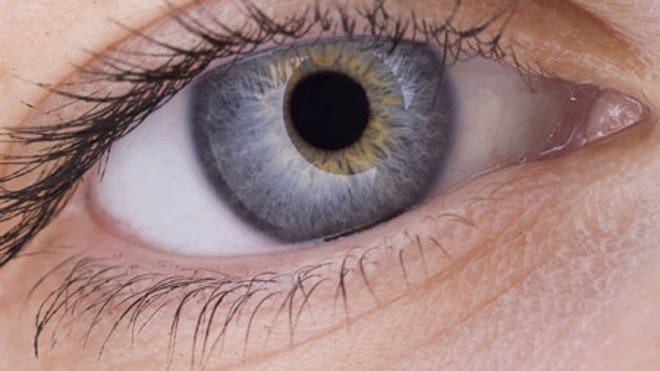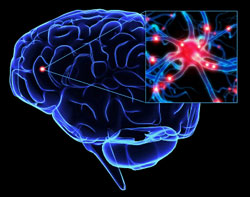Diagnosing someone with Alzheimer’s disease can be a long and complicated process. In addition to reviewing a patient’s full medical history, doctors must also subject individuals to expensive brain scans or invasive surgical procedures in order to be fully certain of the disease’s presence.

But now, there may be an easier way to spot the brain-wasting condition. Researchers from Georgetown University Medical Center (GUMC) and the University of Hong Kong have found that it may be possible to diagnose Alzheimer's simply by screening for changes in two very important organs: the eyes.
In a new study presented at the Neuroscience 2013 conference, the scientists detailed how the thickness of a particular layer of retinal cells may serve as an indication of Alzheimer’s progression.
“We’re looking for biomarkers for early disease [recognition], partly for our new clinical studies focusing more on prevention of Alzheimer’s… and to test new drugs,” study author Dr. R. Scott Turner, director of the Memory Disorder Program at GUMC, told FoxNews.com. “We’re hoping to incorporate this as a new biomarker for drug trials and potentially for screening and prognosis.”
Currently, there are two leading biomarkers that physicians can utilize to diagnose Alzheimer’s. One is the buildup of beta-amyloid plaques in the brain, which can be observed through positron emission tomography (PET) or computed tomography (CT) scans. The other involves measuring changes in protein levels of the cerebrospinal fluid – the liquid surrounding the brain and spinal cord.
However, brain imaging scans can be expensive for patients, and in order collect samples of the cerebrospinal fluid, doctors must administer a spinal tap, which can be a very invasive procedure.
Hoping to find a simpler biomarker, Turner and his colleagues decided to analyze the relationship between the eyes and dementia. According to Turner, the retina serves as a direct extension of a person’s brain.
“The retinas have neurons themselves that send projections straight into the brain,” Turner said. “…Those nerve cells are directly connected to the brain via the optic nerve….So when looking at the retina, it’s the easiest place to see the brain and its neurons.”
Turner also noted that there has been an established association between glaucoma and Alzheimer’s, though the mechanisms behind the relationship remain unclear. Most studies examining this connection have revolved around the retinal ganglion cell layer, which is responsible for transmitting visual information through the optic nerve. However, this cell layer relies on information it receives from another layer in the retina called the inner nuclear layer, which had never before been studied in relation to dementia.
With this knowledge in mind, the researchers analyzed a group of mice that had been genetically engineered to develop Alzheimer’s disease, observing the thicknesses of the six layers in their retinas. They found that there was significant loss in thickness to both the inner nuclear layer, which experienced an average 37 percent loss of neurons, and the retinal ganglion cell layer, which experienced an average 49 percent loss.
According to Turner, these two retinal layers may be most vulnerable to neuron loss because they are larger than the other layers.
“The larger the neuron, the more vulnerable it seems to be to injury,” Turner said. “We looked at some of the other [smaller] neurons, and they didn’t lose much because they were presumably less vulnerable. So we think whatever is killing neurons in the brain is killing the bigger nerve cells in the retina.”
The next step, Turner said, is to see if this biomarker translates to humans with Alzheimer’s. If similar changes in retinal thickness occur in people, then a simple, noninvasive procedure known as optical coherence tomography (OCT) can be used to measure loss of neurons in these layers.
“If this holds true with humans and seems to be predicative, it could be used for screening, diagnosis, prognosis, but probably more immediately, a research tool to test new drugs,” Turner said. “…But we should probably be looking at the retinal thickness of our Alzheimer’s patients.”
Care of: http://www.foxnews.com/health/2013/11/13/can-changes-in-eyes-help-diagnose-alzheimers-disease/





















 The
The